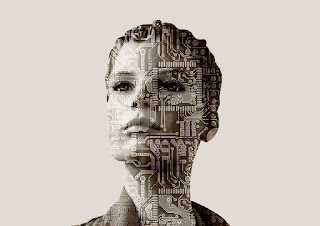What is Artificial Intelligence & How Can It Help
What Is Artificial Intelligence?
Artificial Intelligence, commonly known as AI, refers to the simulation of human intelligence in machines that are programmed to think and learn like humans. It is an interdisciplinary field of study that combines computer science, engineering, mathematics, linguistics, psychology and philosophy. The goal of AI is to create intelligent machines that can perform tasks that would normally require human intelligence such as visual perception, speech recognition, decision-making, problem-solving, and natural language processing.
AI can be classified into two main categories: There is a type of AI known as narrow AI, which is designed to perform one specific task, such as playing chess or driving a car. There is also a program that is programmed to learn and improve its performance in a given area over time. In contrast, general artificial intelligence (GAI) is designed to work in any area of intellectual capacity that a human is capable of. This type of AI can reason, solve problems, learn, understand natural language and interact with humans.
AI has already revolutionized many industries, including healthcare, transportation, finance, and education. It has made it possible to diagnose diseases more accurately, make predictions about the stock market more reliably, and even personalize education for students. However, for some, AI is raising ethical concerns such as privacy, bias, and job displacement. As AI continues to advance, it will become increasingly important to address these issues.
AI is certainly a rapidly growing field that has the potential to transform the way we live and work. It has already made significant contributions to society, and we can expect it to continue to do so in the future. However, it is important to approach AI with caution and to ensure that its development is guided by ethical principles.
How Artificial Intelligence (AI) Can Help The Average Person
Artificial Intelligence (AI) is the new buzzword that has been making waves in the technological world for quite some time now. With the advancements in technology, AI has become an integral part of our lives, and it is transforming the way we live, work, and interact with the world around us. The potential of AI is immense, and it can bring about significant changes in the lives of people, making their lives better than ever before.
One of the most significant benefits of AI is its ability to automate repetitive and ordinary tasks, freeing up time and resources for people to focus on more creative and innovative tasks. For example, AI-powered chatbots can be used to handle customer queries and complaints, which would otherwise require human intervention. This not only saves time but also reduces the workload on human employees, allowing them to focus on more complex and challenging tasks.
Another way AI can make life better for the average person is through its ability to provide personalized recommendations and solutions. AI algorithms can learn from user behavior and preferences, and use this data to provide tailored recommendations that are more relevant and useful to the user. This can be seen in applications such as music streaming services, where AI algorithms provide personalized playlists based on the user's listening history and preferences.
AI can also help improve healthcare by analyzing large amounts of patient data to identify patterns and predict potential health issues. This can help doctors and healthcare professionals to diagnose and treat diseases more accurately and efficiently, leading to better patient outcomes. Additionally, AI-powered robots can be used to perform surgeries and other medical procedures, reducing the risk of human error and improving the overall quality of care.
There is no question there are numerous ways in which AI can make life better for the average person. From automating ordinary tasks to providing personalized solutions, AI has the potential to revolutionize the way we live and work. As the technology continues to evolve, we can expect to see even more innovative applications of AI that will further enhance our quality of life.
Tom

.jpg)


Comments
Post a Comment